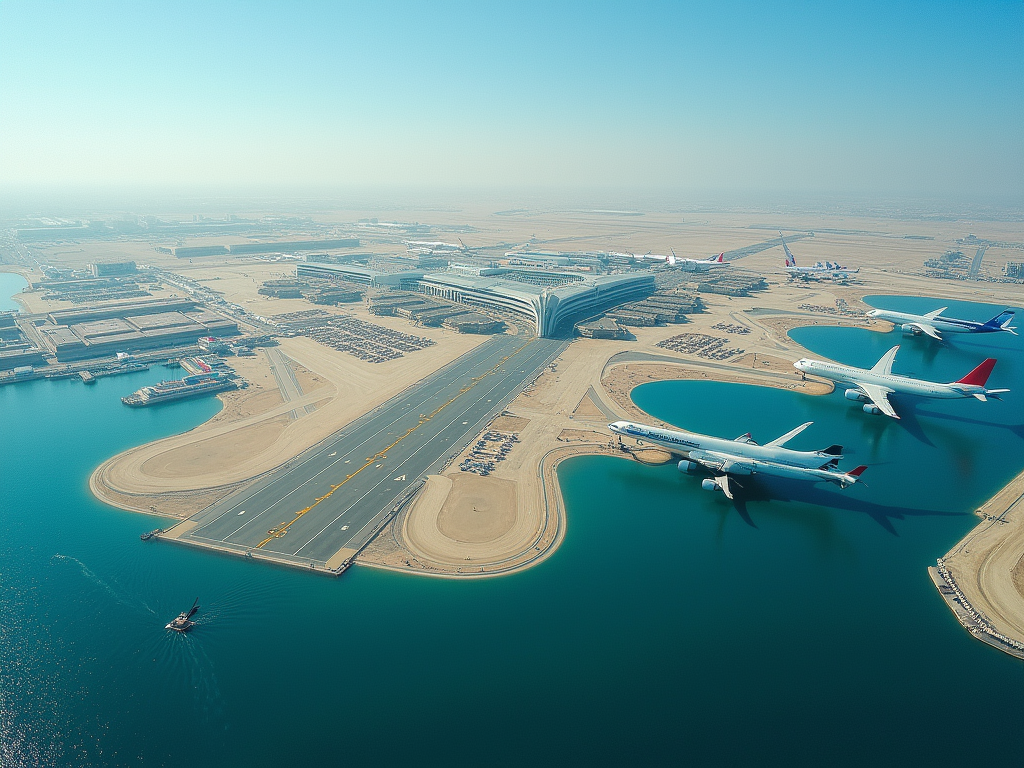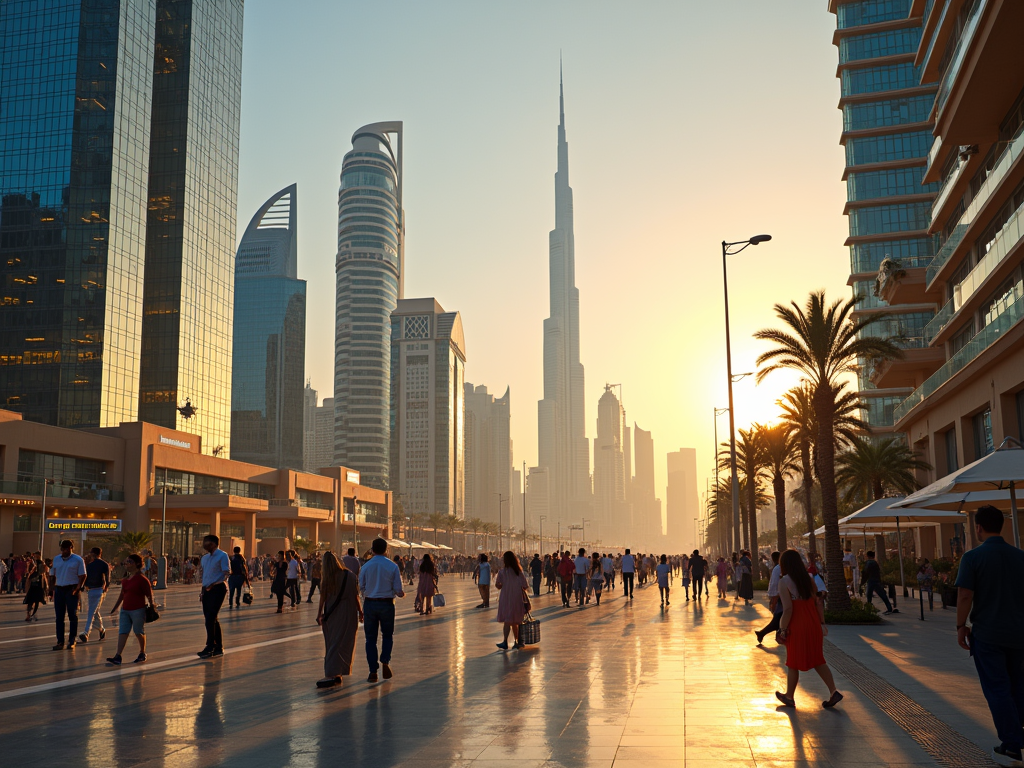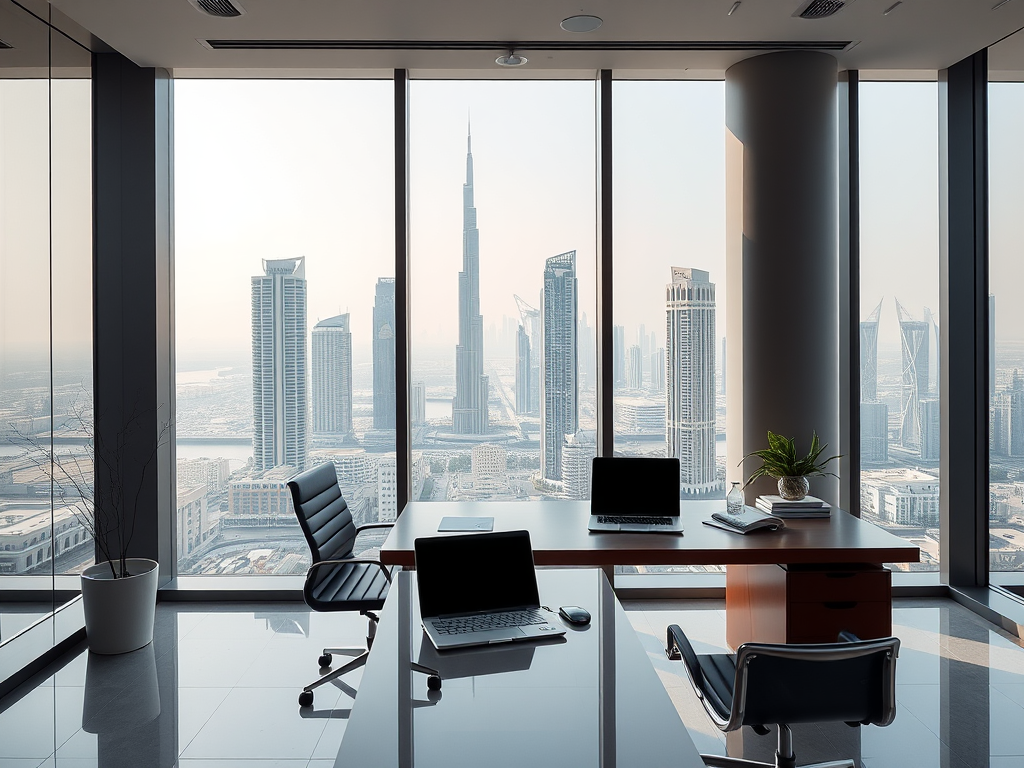Dubai has transformed from a modest fishing village to a global powerhouse in trade, finance, and business innovation over the last few decades. This drastic change is attributed to a combination of visionary leadership, strategic geographical positioning, and the diversification of its economy. By focusing on infrastructure, tourism, and a business-friendly environment, Dubai has established itself as a hub for international commerce and finance. The city is now home to numerous multinational corporations, making it a key player in the global economy. This article will delve deeper into the factors that have propelled Dubai to its current status and explore what sets it apart from other global cities.
Strategic Location and Infrastructure Development

One of the primary reasons for Dubai’s ascendance as a trade hub lies in its strategic geographical location. Positioned at the crossroads of Europe, Asia, and Africa, Dubai serves as a critical transit point for businesses engaged in international trade. The city’s state-of-the-art infrastructure significantly enhances its appeal to global traders. Key aspects include:
- Dubai International Airport (DXB): One of the busiest airports in the world, facilitating the movement of millions of passengers and cargo annually.
- Jebel Ali Port: The largest man-made harbor globally and a key maritime gateway that handles a substantial portion of cargo traffic.
- Modern Road and Rail Network: Expansive highways and an expanding metro system that connect various business districts efficiently.
This combination of location and infrastructure draws international businesses and investors, ensuring seamless trade operations. The Dubai government has continually invested in infrastructure projects to maintain and enhance this competitive edge.
Business-Friendly Environment and Regulatory Framework

Dubai’s regulatory environment is designed to nurture business innovation and attract foreign investment. The government has implemented several initiatives to create a business-friendly atmosphere, including:
- Free Zones: Dubai hosts multiple free economic zones, such as Dubai Internet City and Jebel Ali Free Zone, offering 100% foreign ownership and tax exemptions. These zones cater to specific sectors, encouraging foreign entities to set up operations without excessive regulatory hurdles.
- Ease of Doing Business: Simplified processes for business registration, obtaining licenses, and additional incentives have significantly lowered the entry barriers for foreign companies.
- Investment Security: The establishment of laws to protect investors’ rights and enforce contracts fosters confidence for foreign investments.
This conducive environment has attracted thousands of businesses to Dubai, positioning it as a leader in finance and trade across various industries.
Tourism plays a pivotal role in Dubai’s economy, driving trade and innovation. The city’s attractions, luxury shopping, world-class hotels, and events create a platform for global business networking. Key highlights include:
- World-Record Events: Hosting prestigious events like the Dubai Shopping Festival and Expo 2020 has attracted millions of visitors and investors.
- Luxury Shopping Destinations: Iconic malls such as The Dubai Mall and Mall of the Emirates cater to tourists and residents alike, enhancing the retail trade sector.
- Hospitality Sector Growth: An expanding range of hotels, from luxury to budget, fosters a vibrant hospitality market that supports business travel and tourism.
This synergy between tourism and trade positions Dubai as an attractive destination for both leisure and business, ultimately boosting its standing on the global stage.
Commitment to Innovation and Technology
Innovation is at the heart of Dubai’s strategy to remain competitive in a rapidly evolving global market. The city has embraced technology in various facets of its economy, leading to groundbreaking advancements. Some key initiatives encompass:
- Smart City Initiatives: Dubai is implementing smart city concepts including AI, IoT, and blockchain to enhance urban life and business productivity.
- Research and Development: The establishment of tech hubs like Dubai Silicon Oasis encourages startups and research-focused enterprises to thrive in a supportive ecosystem.
- Digital Transformation: Embracing e-commerce and FinTech innovations has modernized Dubai’s business landscape, bridging the gap between traditional and modern commerce.
This commitment to technology not only attracts tech-savvy businesses but also positions Dubai as a global leader in innovation, further entrenching its status in finance and business.
Conclusion
In conclusion, Dubai’s transformation into a world leader in trade, finance, and business innovation is no coincidence. Through strategic planning, a robust regulatory framework, investment in infrastructure, a commitment to tourism, and a focus on innovation, the city has created a conducive environment for businesses to thrive. As global dynamics continue to shift, Dubai remains adaptable and poised for future growth, ensuring its place on the world stage.
Frequently Asked Questions
1. What are the main economic sectors driving Dubai’s economy?
The main sectors driving Dubai’s economy include tourism, trade, finance, real estate, and logistics.
2. How does Dubai attract foreign investors?
Dubai attracts foreign investors through its business-friendly regulations, free zones with tax exemptions, and a commitment to protecting investor rights.
3. What role does tourism play in Dubai’s economy?
Tourism significantly contributes to Dubai’s economy by generating revenue, creating jobs, and enhancing trade by attracting international visitors and businesses.
4. How is technology shaping Dubai’s business landscape?
Technology is shaping Dubai’s business landscape through smart city initiatives, e-commerce growth, and fintech innovations, streamlining operations and enhancing productivity.
5. What future trends can we expect from Dubai’s economy?
Future trends may include further advancements in artificial intelligence, a stronger focus on sustainability, and the continued expansion of tech hubs to foster innovation.



